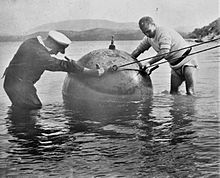This article was written and edited by the team at Anoop & Co. – AOR Anoop Prakash Awasthi, Adv. Parthvi Ahuja and Atluri Sri Vidya.
The Corfu Channel Case was a significant case in international law that arose from an incident in which two British destroyers struck mines that had been laid by the Albanian military in the Corfu Channel. The incident led to a dispute between the British and Albanian governments over responsibility for the loss of life and property, as well as the legality of laying mines in international waters. The case was brought before the International Court of Justice (ICJ) and resulted in an important ruling that established principles regarding innocent passage through international waters and the use of force in self-defence.
Facts of the Case
In October 1946, two British destroyers, HMS Saumarez and HMS Volage, were navigating through the Corfu Channel, which separates the island of Corfu from the mainland of Albania. While passing through the channel, the ships struck mines that had been laid by the Albanian military. As a result, both ships suffered damage, and 44 crew members were killed or injured.
The British government held the Albanian government responsible for the incident and demanded compensation for the loss of life and property. The Albanian government denied responsibility for the incident, claiming that the mines had been laid for defensive purposes and were not intended to harm innocent vessels.
Issues of the Case
The main issues of the case were whether the laying of mines in international waters constituted a violation of international law and whether the British Navy had a right to navigate through the Corfu Channel without interference. The case also raised questions about the use of force in self-defence and the obligation of states to engage in peaceful settlement of disputes.
Judgment of the Case
In its judgment, the ICJ held that Albania had violated its obligations under international law by laying the mines in a manner that posed a threat to innocent passage. The court noted that the Corfu Channel was an important international waterway that had been used for centuries by vessels from various nations. The court also held that the British Navy had a right to navigate through the Corfu Channel without interference.
However, the ICJ did not hold Albania responsible for the loss of life and property resulting from the incident. The court held that the use of force by the British Navy against the Albanian mines was justified as a measure of self-defence, but it also noted that both parties had failed to engage in peaceful settlement of the dispute prior to the use of force. The court encouraged both parties to engage in negotiations to resolve the dispute in a peaceful manner.
Analysis of the Case
The Corfu Channel Case is significant for several reasons. First, it established important principles regarding innocent passage through international waters. The ICJ held that states have an obligation to ensure that their activities do not pose a threat to innocent passage through international waterways. This principle has been reiterated in subsequent cases and is now recognized as an important norm of international law.
Second, the case clarified the conditions under which the use of force in self-defence is justified. The ICJ held that the use of force against the Albanian mines was justified as a measure of self-defence, but only after a peaceful settlement of the dispute had been attempted. This principle has also been reiterated in subsequent cases and is now recognized as an important limitation on the use of force in international relations.
Finally, the case highlighted the importance of diplomacy and peaceful settlement of disputes in international relations. The ICJ encouraged both parties to engage in negotiations to resolve the dispute in a peaceful manner, and this approach has been emphasized in subsequent cases and international agreements.




